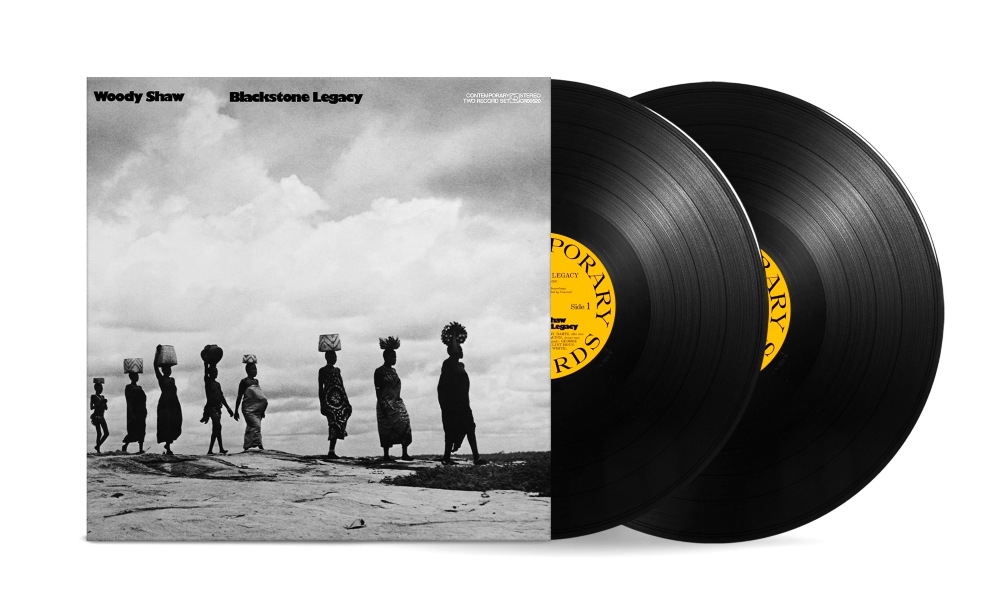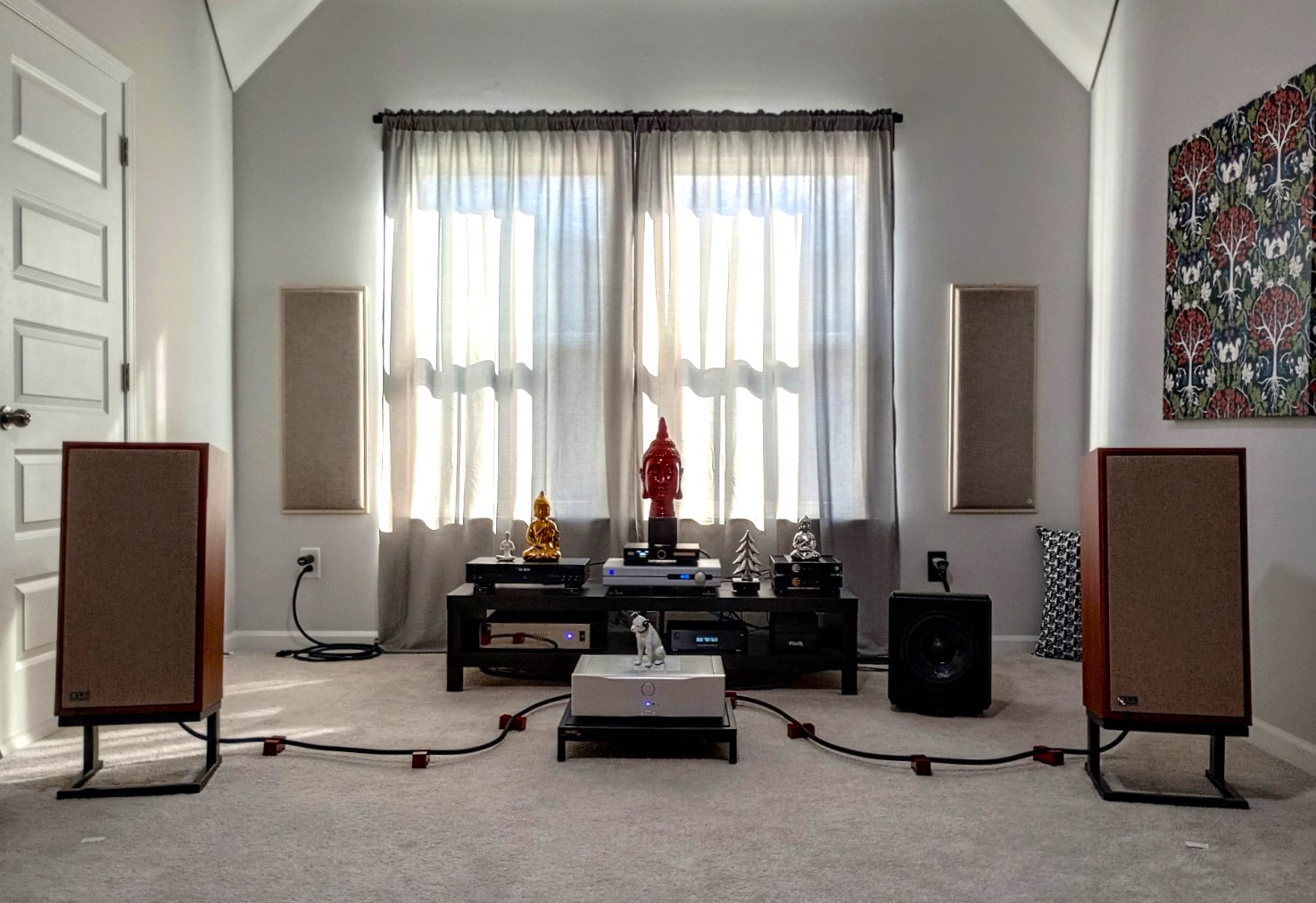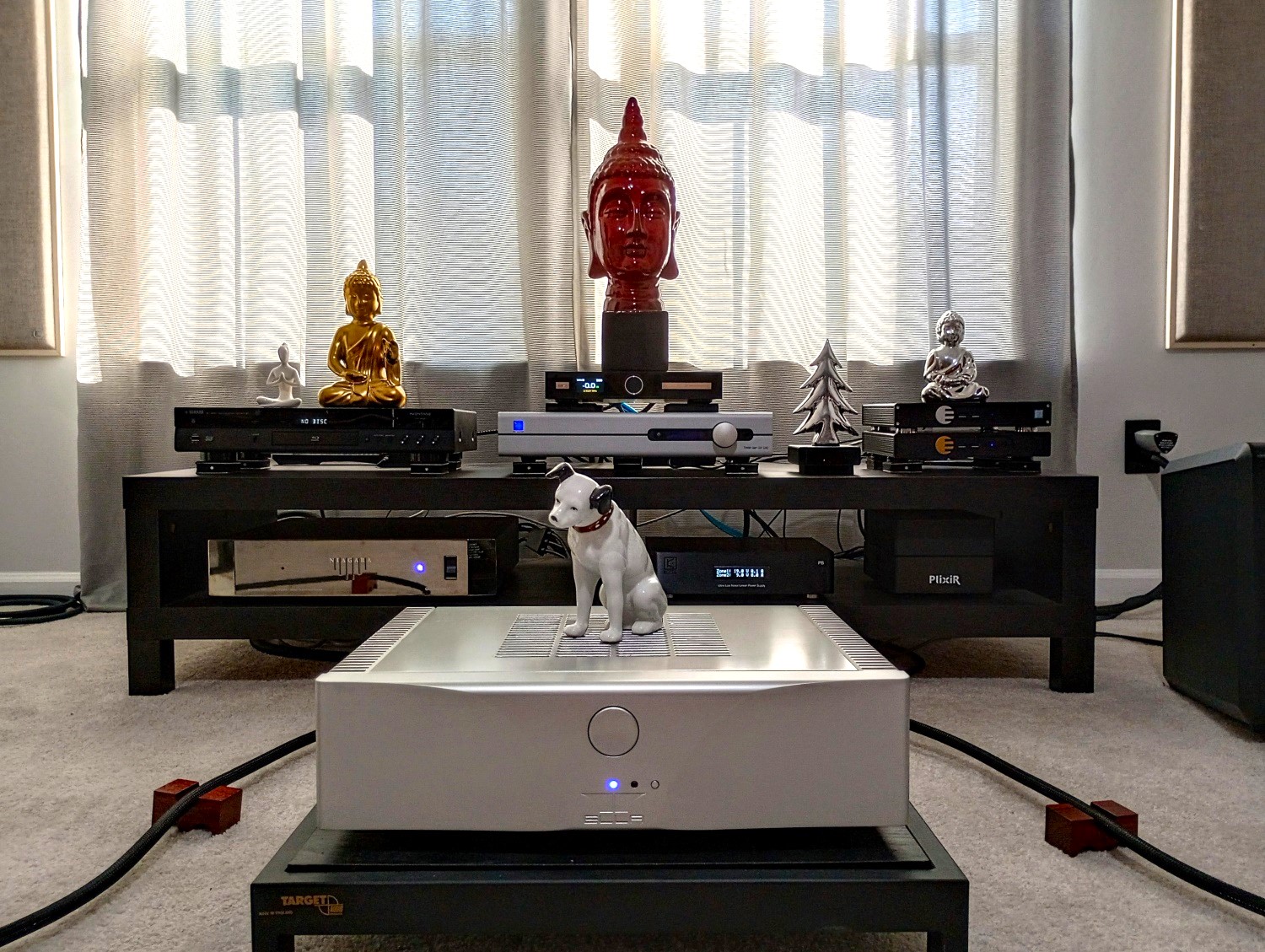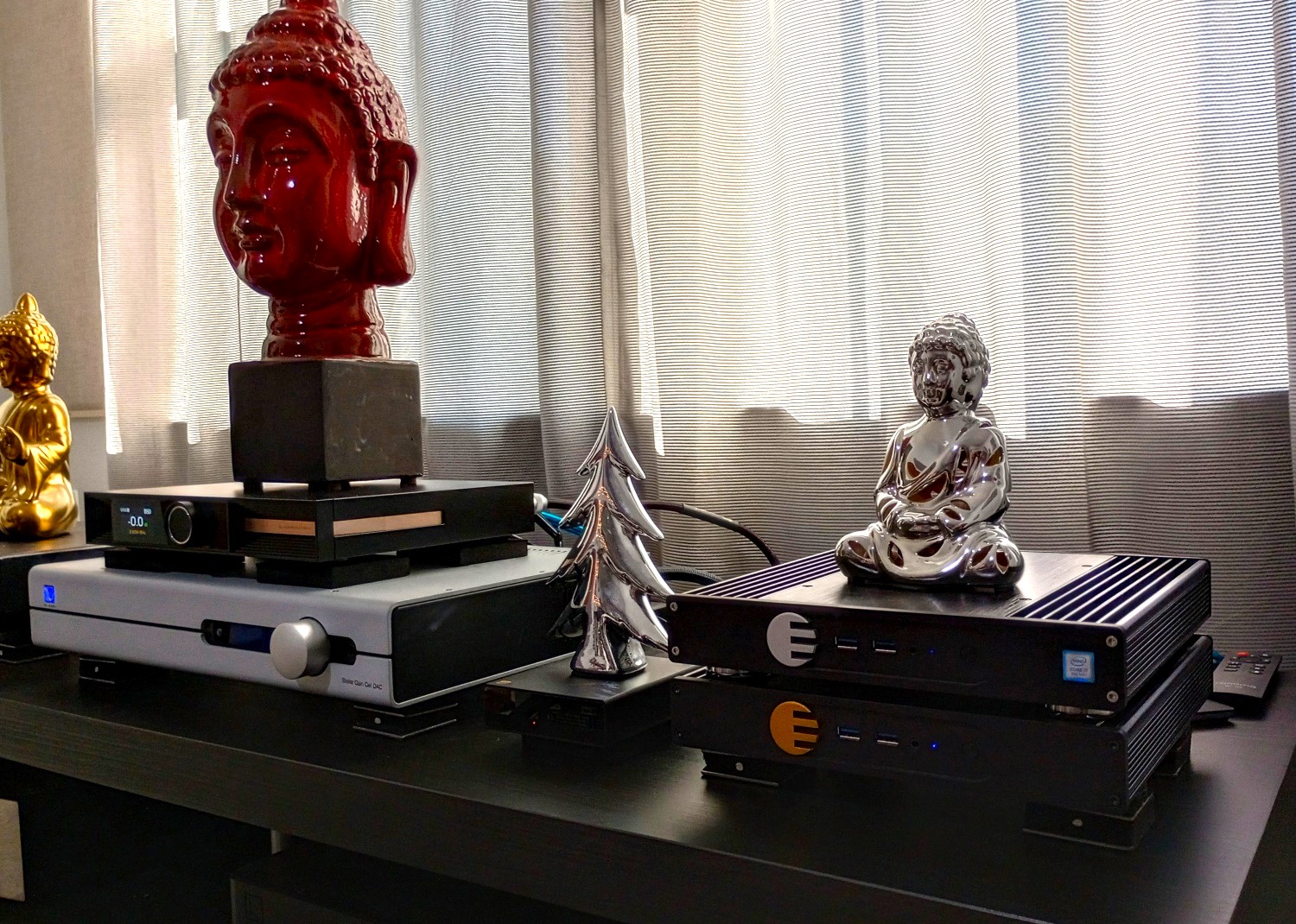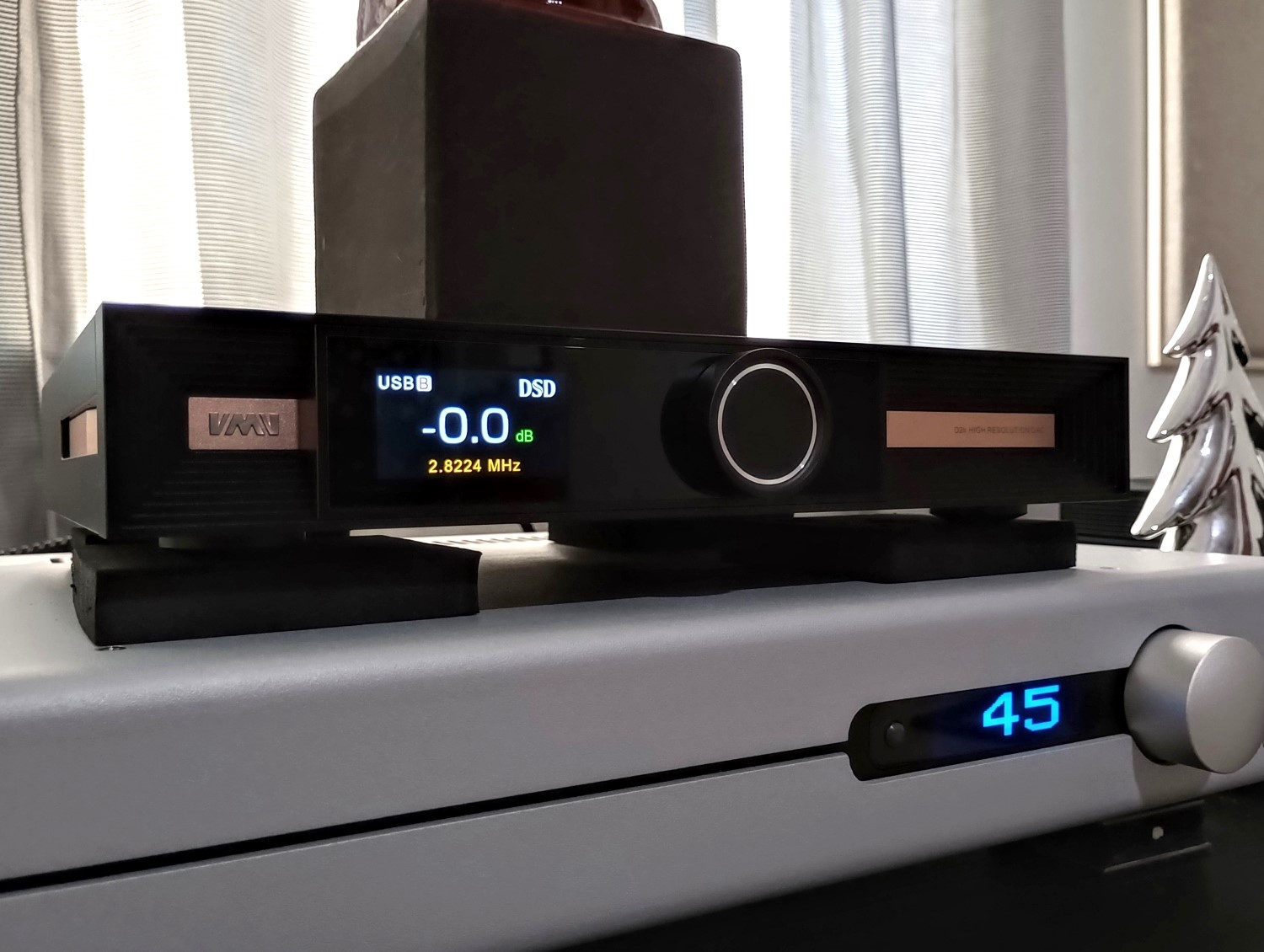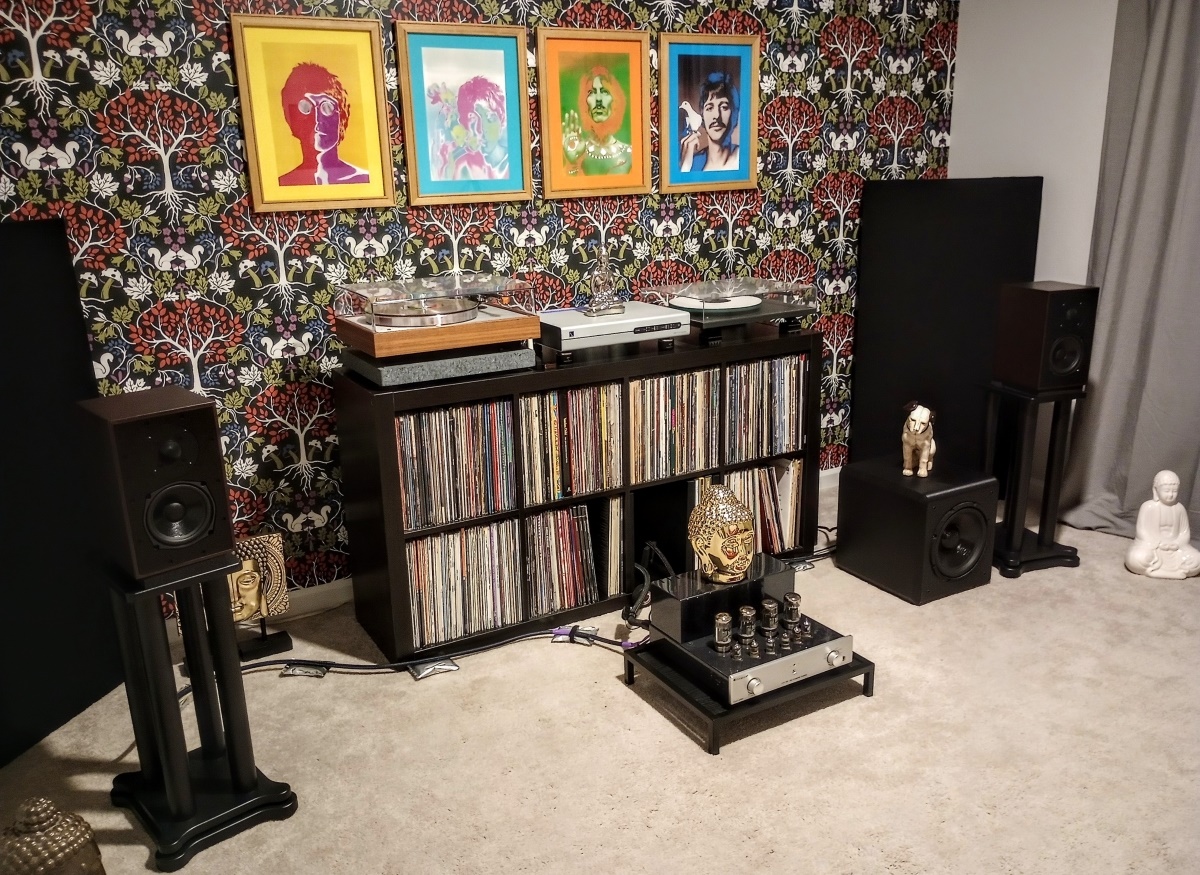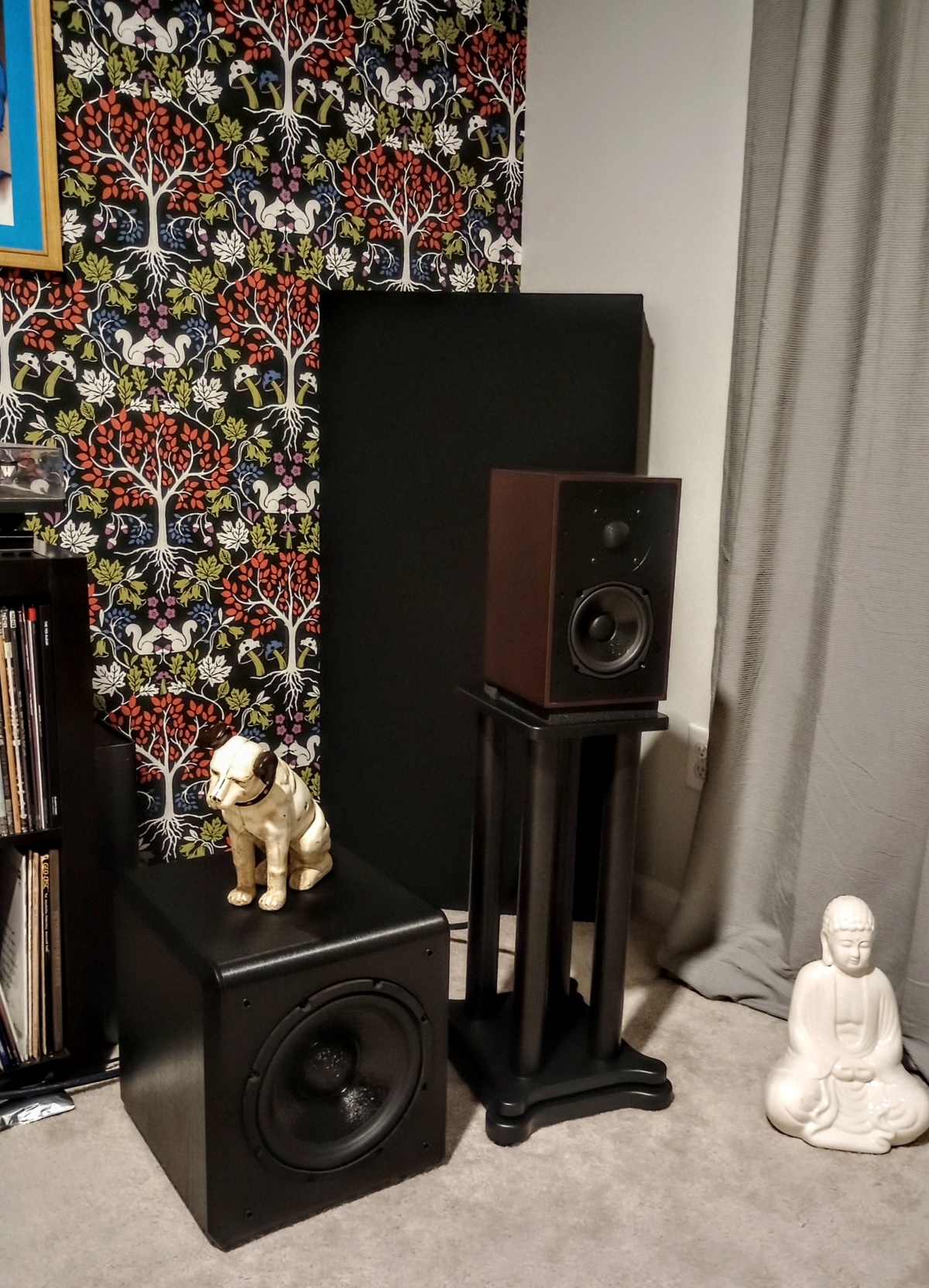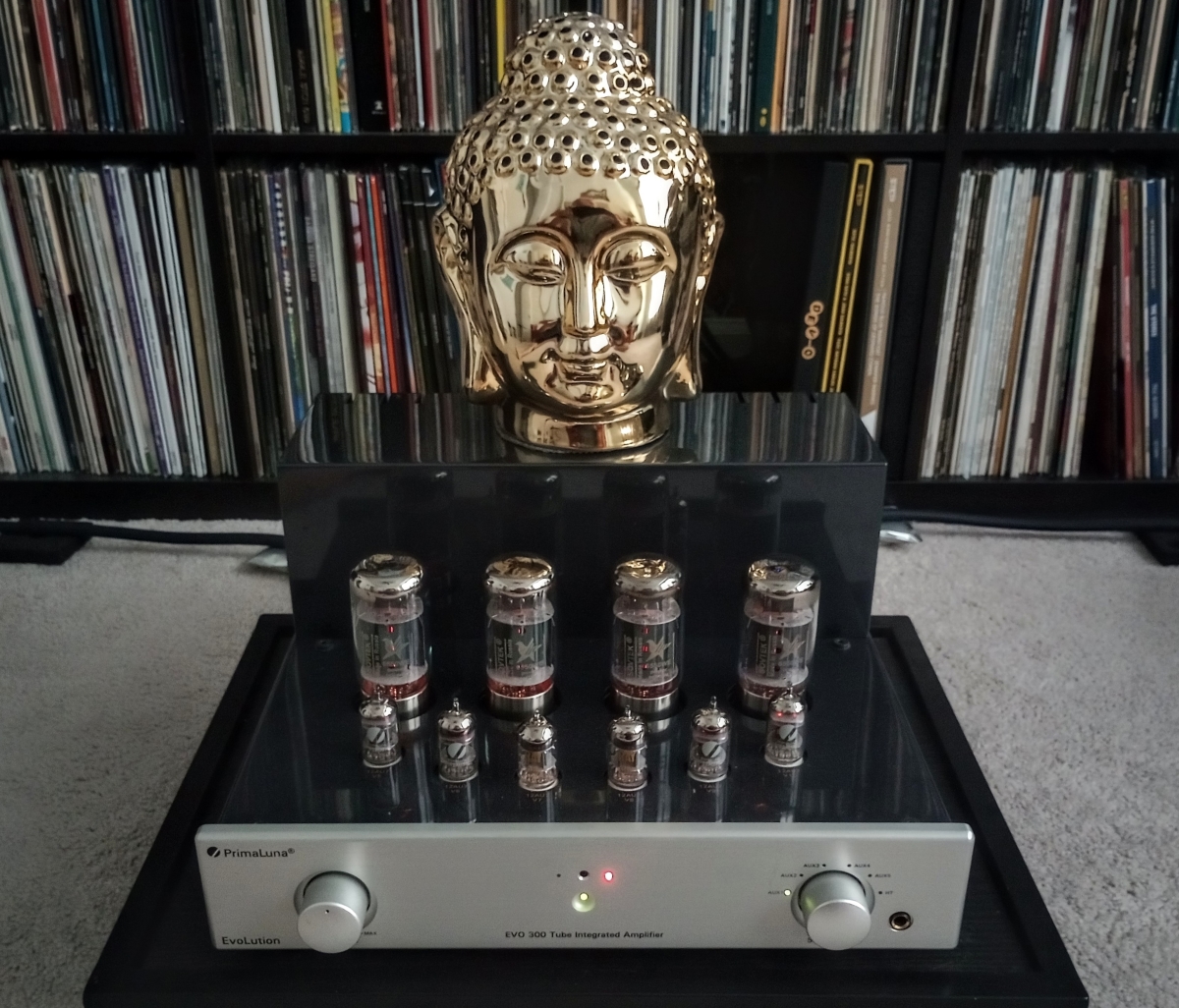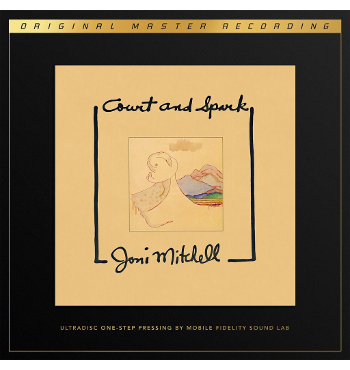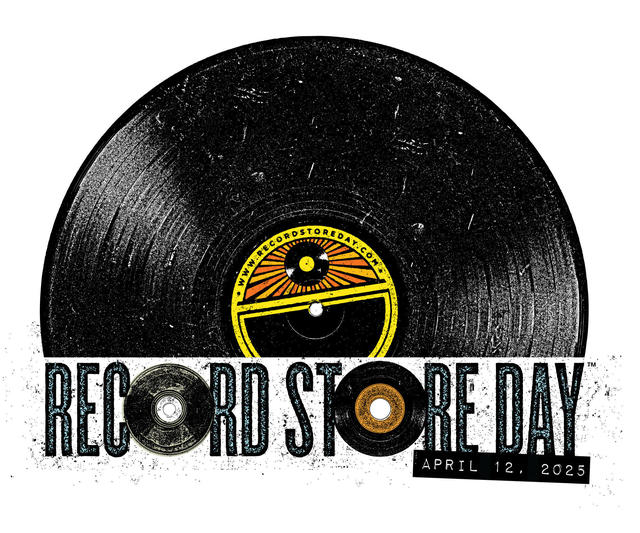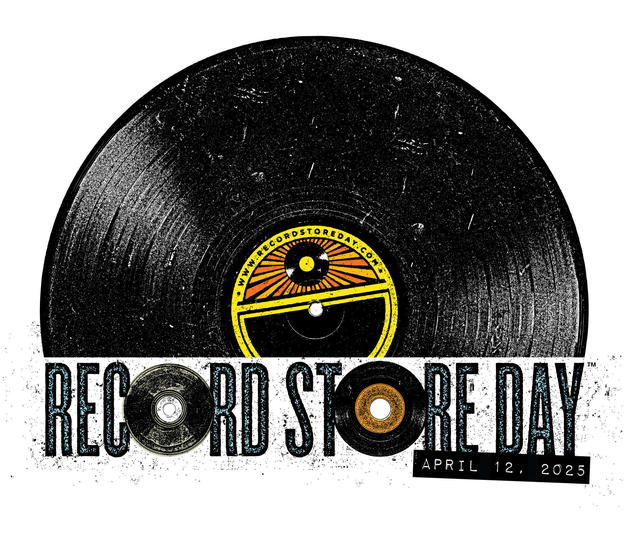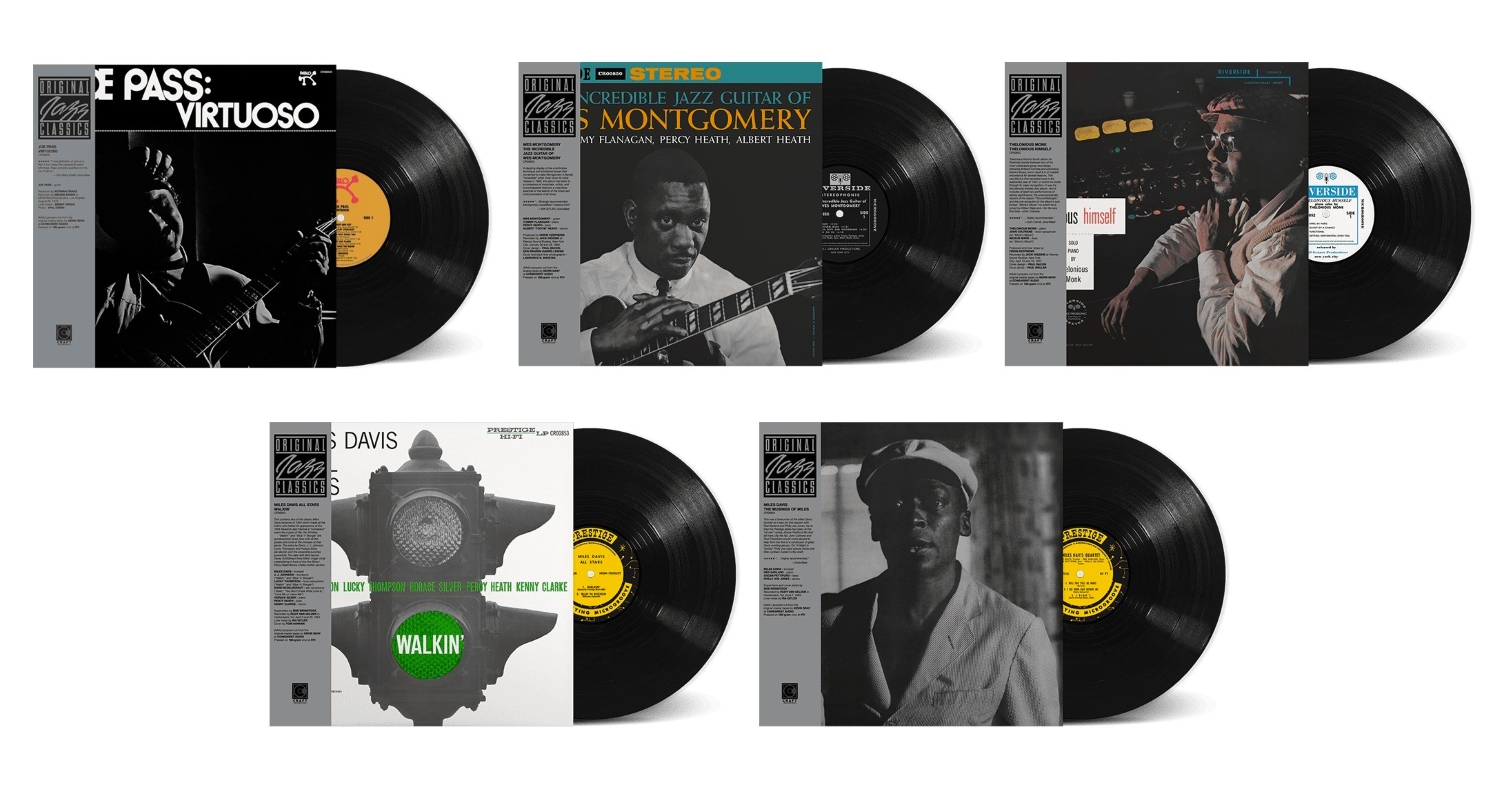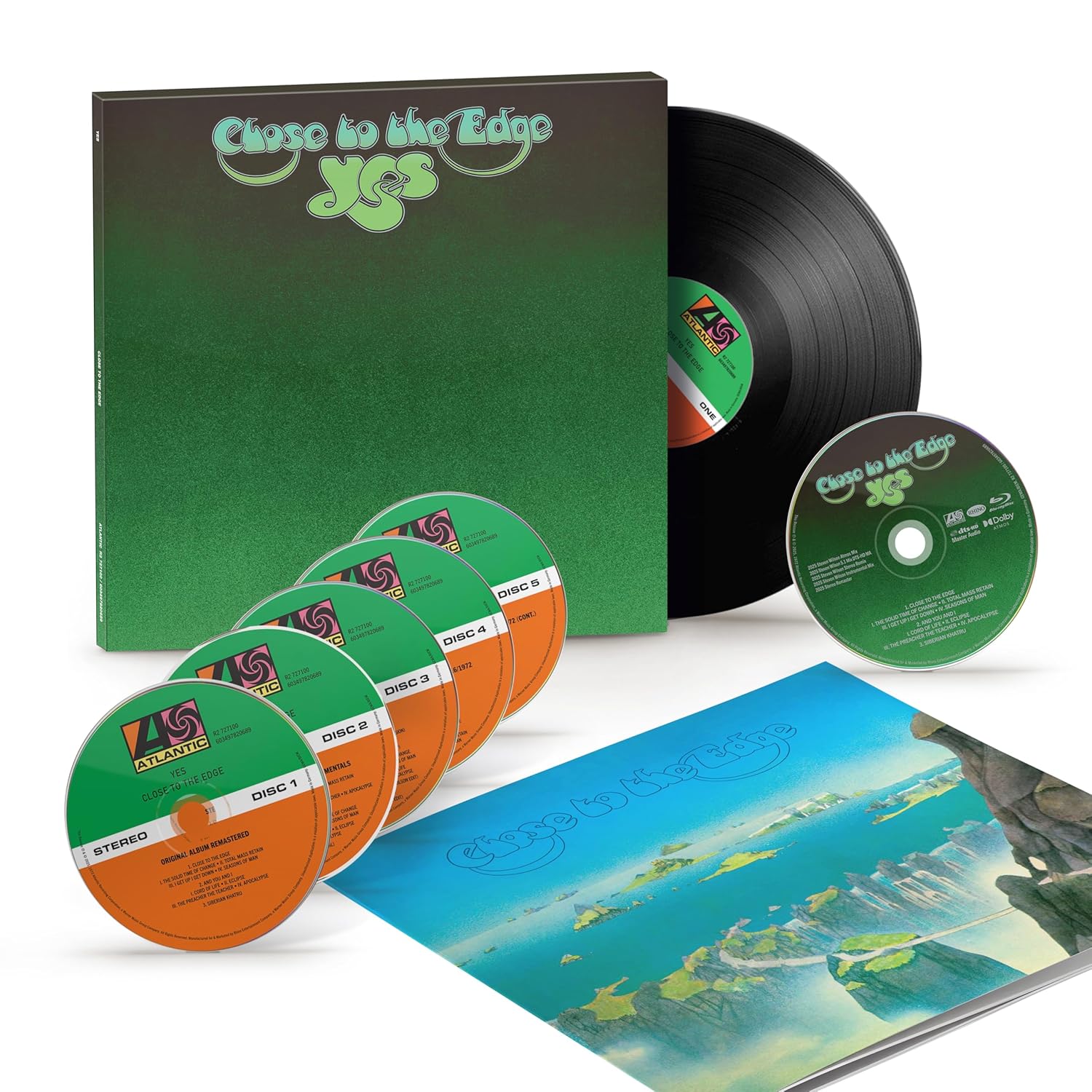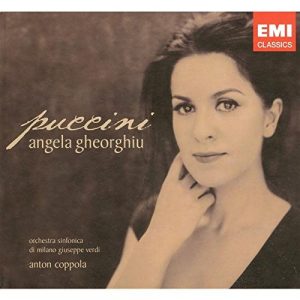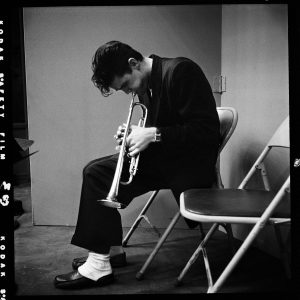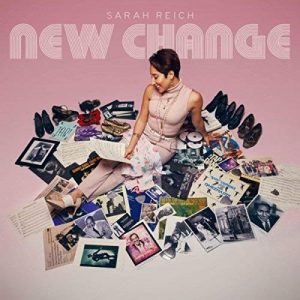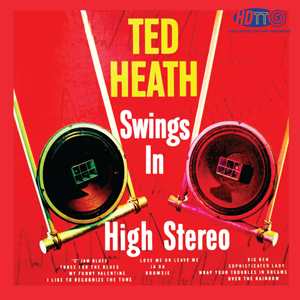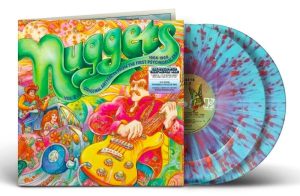Jazz Dispensary is Craft Recordings' specialty label that unearths rarities from the multitude of riches found in Concord Music's jazz, funk, soul, and fusion recordings from the Prestige, Fantasy, Contemporary, and Milestone imprints from their mid-60s through the mid-70s catalogs. While many of those releases arrive in the form of compilations of classic grooves from the period, Jazz Dispensary's Top Shelf series highlights neglected or almost-forgotten releases from influential but less-well-known artists from Concord's deep catalog. Trumpeter Woody Shaw's 1971 debut album, Blackstone Legacy, is the second in the Top Shelf slate of releases for 2023. The LP has been out of print in the United States for over 50 years; I did a quick scan of Discogs for yellow-label Contemporary originals, and mint condition copies go for upwards of $500 or more. Blackstone Legacy is obviously an album you don't stumble across in used record bins too often!
Blackstone Legacy was painstakingly remastered from the original analog tapes by Kevin Gray at Cohearent Audio, and was pressed on audiophile quality, 180 gram vinyl at RTI. These are AAA, all-analog recordings throughout every step of the remastering to LP pressing process. The artwork for the heavy, tip-on style jacket comes from Concord's vaults, making this new reissue very faithful to the original. And the gatefold, Stoughton-style jacket has a really nice high-gloss coating that enhances the album's appearance exponentially: this is a truly beautiful album package. Blackstone Legacy arrived with both LPs encased in Craft Recordings-branded, scratch-free, static resistant rice paper inner sleeves. The rice paper inner sleeves provide excellent protection for the albums, and are a really perfectionist touch that this level of LP reissue demands.
The album's excellent liner notes were written by jazz critic and historian Nat Hentoff for the original release, and include comments from Woody Shaw about his process in developing the music for Blackstone Legacy. I've pulled some of the quotes to reflect Woody Shaw's passion for his music and how he hoped his vision would inspire a better future for everyone; I found his comments from nearly 50 years ago incredibly eloquent and still very relevant to our world's current reality:
"This album is dedicated to the youth who will benefit mankind. To the youth who are constantly aware of the turmoil in which the world is and who are trying to right all these wrongs—whether in music or in speech or in any other way of positive work. This album is dedicated to the freedom of Black people all over the world. And it's dedicated to the people in the ghettos here. The 'stone' in the title is the image of strength. I grew up in a ghetto—funky houses, rats and roaches, stinking hallways. I've seen all of that, and I've seen people overcome all of that. This music is meant to be a light of hope, a sound of strength and of coming through. It's one for the ghetto. We're trying to express what's happening in the world today as we—a new breed of young musicians—feel it. I mean the different tensions in the world…the oppression of poor people in this, a country of such wealth…we're all also trying to reach a state of spiritual enlightenment in which we're continually aware of what's happening but react in a positive way. The music in this album, you see, expresses strength—confidence that we'll overcome these things."
Woody Shaw, Blackstone Legacy. (2) 180 Gram Craft Recordings LPs, $40 MSRP
Like many jazz musicians of that time, Woody Shaw battled with heroin addiction, and died at only 44 years of age when he passed in 1989. Despite checking out much too soon, he lived several lifetimes in the relatively short period he graced the earth with his presence. The trumpet wasn't Woody Shaw's first choice of instruments; when he first became deeply involved in junior high band, he defaulted to the trumpet because the saxophone and trombone slots were already taken. His teachers encouraged him, and he soon mastered the instrument he described as sounding too "tinny." Shaw stated that his early influences included Dizzy Gillespie, Clifford Brown, Fats Navarro, Booker Little, Lee Morgan, and Freddie Hubbard. He worked for a while in the early sixties with Eric Dolphy; Shaw considered him his mentor and friend, and Dolphy invited him to come to Paris (where he lived) to join his band. Dolphy unexpectedly died before Shaw's arrival, but Shaw stayed and toured Europe with multi-instrumentalist Nathan Davis, one of Dolphy's associates. While in Paris, Woody Shaw got a great deal of exposure to and absorbed the influences of many jazz players who lived and performed there, including Bud Powell, Kenny Clarke, Dexter Gordon, Johnny Griffin, and Art Taylor.
Shaw returned to the US in mid-1965, and soon found regular work in Horace Silver's quintet and with organist Larry Young, who was one of Shaw's contemporaries. Shaw also collaborated and recorded with Jackie McLean, Booker Ervin, McCoy Tyner, and Max Roach, and as the end of the decade approached, his sound started moving more towards the avant garde. Shaw played and recorded regularly with Chick Corea, Herbie Hancock, Bobby Hutcherson, and Andrew Hill, but by the end of 1970, he'd formed his own vision for a new musical direction. On December 9th, he convened at New York's A&R Studios to record his debut album, Blackstone Legacy. The sessions featured an all-star cast of musicians who were all headed on a similarly avant garde and fusionesque arc. In addition to Woody Shaw's trumpet, the lineup included Gary Bartz on alto and soprano saxes, Bernie Maupin on tenor sax, bass clarinet, and flute, George Cables on piano and electric piano, Ron Carter on acoustic bass, Clint Houston on electric bass, and Lenny White on drums. Woody Shaw composed the bulk of the album, and keyboardist George Cables also offered two originals, "Think On Me" and "New World."
Blackstone Legacy draws a similar sonic and thematic parallel to Miles Davis' Bitches Brew. Even with its avant garde and free jazz leanings, Blackstone Legacy's less dense instrumentation and absence of electric guitars might explain why this album wasn't totally embraced by the rock crowd—it stayed a bit more true to its jazz heritage. Side one features the eponymous Shaw composition "Blackstone Legacy"; Woody Shaw's trumpet is front and center in the soundfield, with Clint Houston's electric bass to the right. George Cables is on electric piano here, and it's really easy on this recording to close your eyes and pick out the positions of Gary Bartz's soprano sax, Bernie Maupin's bass clarinet, and Lenny White's drum kit in the recorded acoustic. Starting out very melodically, the proceedings soon devolve into an almost unstructured free jazz blowing session. Lenny White's rock-solid drumming keeps a constant backbeat, and George Cables' keyboards maintain a sense of purpose and direction. Near the tune's end, you get some nicely intricate interplay between Houston and Lenny White that pushes the tune towards its conclusion, where the horns return with a cacophony of brass and woodwind fury.
Side two opens with George Cables' "Think On Me," and he sets an electric piano vamp that forms the tune's foundation. The arrangement is more classically melodic here, and Woody Shaw solos extensively throughout. "Lost And Found" is another Shaw original; it opens with an unrestrained drum intro from Lenny White that displays the kind of power and drive I don't ever recall hearing on any of his Return to Forever records! All three horns solo frenetically, George Cables contributes a really nicely done electric piano turn, then White again solos furiously, as he and the horns alternate, driving the tune to its conclusion.
Another Cables composition, "New World," fills the length of Side three, and opens with some beautiful interplay between Ron Carter and Clint Houston on the bases. Suddenly a beautiful wash of Cables' keyboards and White's percussion creates an atmosphere of near-mysticism. The horns join in, and the tune seems to be heading in a brassy direction, but then Cables reappears with the funkiest electric piano solo he fashions on the entire album. This continues for seemingly forever, with the horns periodically punctuating Cables' groove; around the ten minute mark, Woody Shaw offers an intense solo, which is quickly followed by each of the horns. Cables then slows the groove down to a crawl, and the tune ends as it began, awash in plucked bass and percussive shimmer.
Both Side four compositions were penned by Woody Shaw; the opener, "Boo-Ann's Grand," begins with a cascade of horns, then segues into a Cables solo on acoustic piano, which extends for the next three minutes or so. Shaw then contributes an extended turn, before bowing to Bernie Maupin and Gary Bartz, who offer equally lengthy baritone clarinet and alto sax solos, moving the tune along to its conclusion. "A Deed for Dolphy" is Woody Shaw's tribute to his mentor, and it's perhaps the most atypical song on the entire album, moving at a very measured pace. Cables offers a really pensive and extended piano solo, and the horns are much more restrained than I would have guessed a tune dedicated to Eric Dolphy would feature. Bernie Maupin adds flourishes of flute throughout, and as the tune reaches its conclusion, there's an extended fadeout as each of the musicians slowly bring the album to its finale.
Jazz Dispensary's reissue of this highly collectable album will sell out quickly!
Clicking my name in the header reveals my digital and analog system setups. For this excellent reissue LP set, I used my mostly analog system that features the ProJect Classic EVO turntable that's mounted with a Hana SL moving coil cartridge. It plays through a Musical Surroundings Phonomena II+ with its dedicated Michael Yee linear power supply; the signal is then fed to a PrimaLuna EVO 300 tube integrated amplifier playing into a pair of KLH Model Five loudspeakers. It's a very modern analog system that presented the Jazz Dispensary reissue of Blackstone Legacy with vintage authenticity and superb musicality. The PrimaLuna tube amp allows for selection of either ultralinear or triode mode with a click of a button on the remote, and while I tried both options, I felt the higher-powered ultralinear mode afforded the music a greater level of dynamics. Which was truly appropriate to this dynamic and brash recording!
Prior to his death, Woody Shaw mentored and taught a diverse group of trumpet players that ranged from Wynton Marsalis, Ingrid Monson, Terence Blanchard, Wallace Roney, and Chris Botti. Blackstone Legacy is an album that, not at all unlike Miles' Bitches Brew, pushed the boundaries of contemporary jazz music more headstrong towards the avant garde and fusion, while still honoring its hard bop roots. Blackstone Legacy's influence on a generation of young artists cannot be overstated, and as such, it greatly deserves to be discussed in the same conversations as Bitches Brew. My black vinyl review copies had glossy surfaces, showed no surface imperfections, and there was no noticeable groove modulation noise present during playback. This is a superb sounding album that needs to be heard! Compared to the high prices of minty used copies on Discogs or elsewhere, the Jazz Dispensary/Craft Recordings reissue of Blackstone Legacy is a remarkable bargain at $40 for two ultra quiet 180 gram RTI LPs, and is available for preorder HERE. This reissue comes very highly recommended!
Craft Recordings
All images courtesy of Craft Recordings




